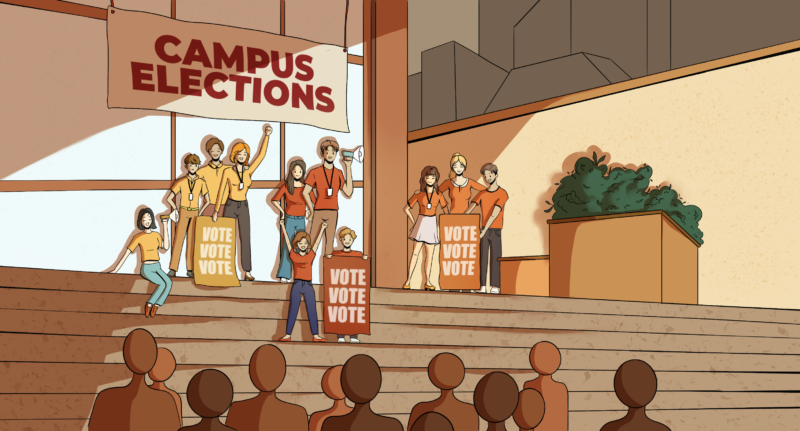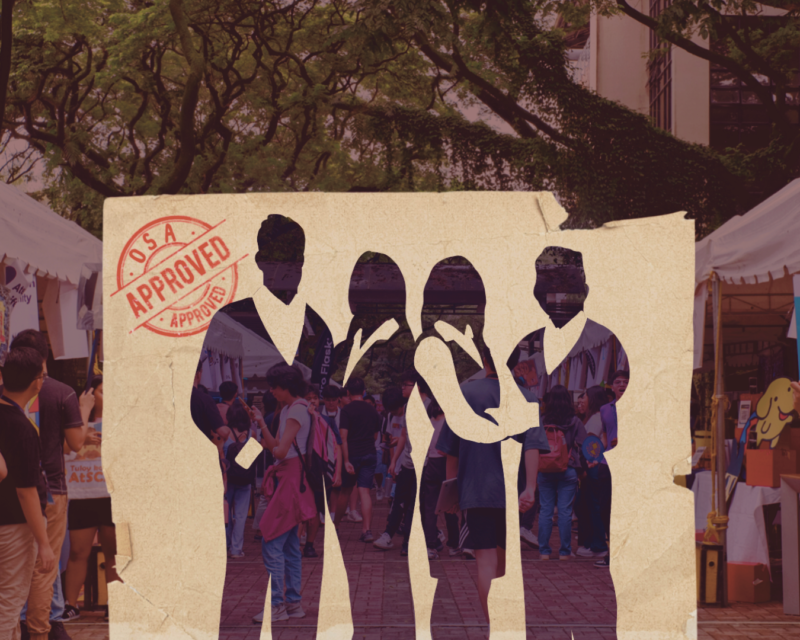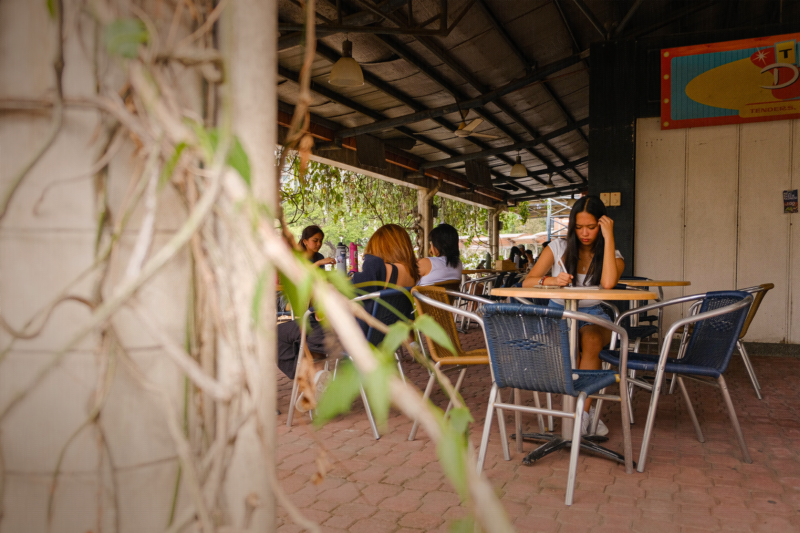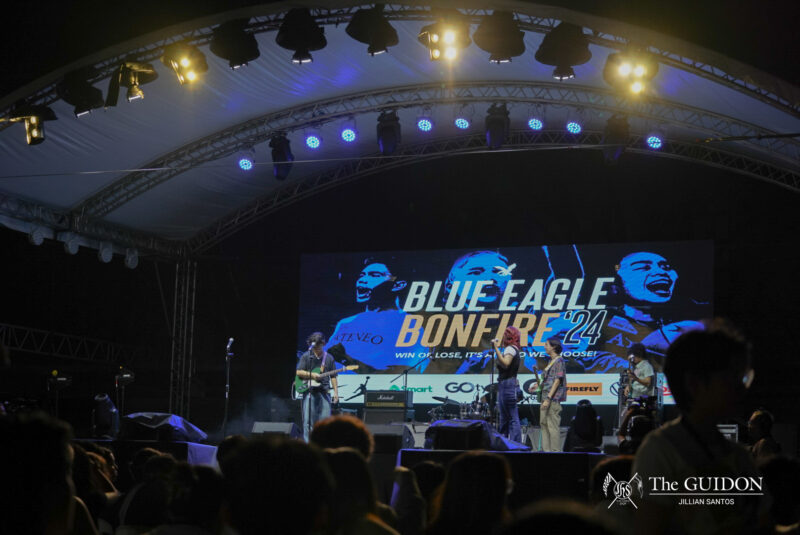One would be mistaken to think of the Ateneo de Manila University as a homogenous collective of individuals who go by the same opinions and beliefs. In fact, recent issues such as that of the Reproductive Health Bill stand testament to the fact that there is much plurality in discourse among the members of the community.
It is because of this that the processes of making decisions and taking stands in the institutional level are complex matters for the administration. The school’s governing body has to deal with a multiplicity of interests and sometimes conflicting needs.
Liberal context
The university’s Jesuit identity plays a key role in decision-making. “You cannot just tell people here to do things. It has to come from them, too. They have to see the point,” University President Fr. Jose Ramon Villarin, SJ explains.
Political Science Department faculty member Anne Candelaria, PhD, who specializes in public management and policy, shares the same sentiments. “Ateneo has always been known organizationally to have encouraged [the community] to think through certain decisions that are made. Dialogue, debate and discussion are encouraged.”
Villarin points out the university’s emphasis on a democratic and open process of decision-making. He cites, for example, how student representatives were invited to the administration’s strategic planning process last year. “We wanted input as well from the students, alumni and parents. We have so many stakeholders; we wanted it as broad as possible.”
Devolution
Vice President for the Loyola Schools John Paul Vergara explains that the administration must take into account varying levels of priority. “Things like budget [are] a long-term decision making area in contrast to things like class suspension. There are urgent decision matters that have to be done that very minute or even within a few hours. There’s no formula for all [decisions].”
“There are many levels—it depends on the level of detail,” says Villarin. He explains how operational matters in the day-to-day are left to the different offices of the university. “They’re actually autonomous in a way. That’s the principle. We try to devolve as much as we can because it’s hard to be hands-on on all the things.”
Both Villarin and Candelaria mention the banig as an analogy for the horizontal structuring of the Ateneo. Candelaria shares, “You have the schools and then under the schools you have the departments and the programs. Aside from that, you have committees where schools and programs and departments interact. So it’s pretty much not just vertical but also the horizontal relationships.”
“It’s an art. You have to keep a strong center otherwise the units fly apart,” Villarin says.
Student representation
On the role of the student government, Sanggunian President Gio Alejo explains that different committees exist for the various interests of the student populace. “It’s not just one body who makes the decisions. There are various committees that are in charge of making decisions in certain aspects, and we as Sanggu have certain representatives that we send to these committees so they can voice out the student opinion,” he explains in a mix of English and Filipino.
Candelaria explains that the Loyola Schools (LS) have different multi-sectoral committee meetings regularly. “Everything goes through a rigorous process, [and these] decisions have a lot of representation.”
Students are integrated in the process as well. “Yes, we actually have a vote. In other [universities], you can only sit in, if they even allow you. But one of our privileges here in Ateneo is that students have a vote,” says Alejo. Underscoring the importance of this, he continues, “And for me that’s a privilege—no, a responsibility.”
Budget and tuition
Vergara says that when it comes to setting the budget and tuition, the school follows a consultative procedure. “We process requests from different departments, and we balance that against the tuition revenue.” After processing all requests, the budget is balanced and then presented to a budget committee for approval. Such is finalized after consultation with parents and students.
The Sanggunian maintains an explicit role in the budget cycle. Alejo explains, “Before the budget committee convenes, we consult first with students on what improvements, what facilities and what equipment they would need for the coming school year based on their assessment of the current supplies and facilities that we have. And with that we compile it into a report and then we now start lobbying it to various offices that are in charge of including it in their budget.”
Vergara explains the rationale behind tuition increase. “More often than not, it’s inflationary. A lot of it has to do with supplies, also the expected increase in salaries for our personnel—prices getting higher, and so salaries getting higher. In terms of why we have to increase, it’s because of those two.”
Suspending classes
Vergara explains how decisions on class suspensions are made. “The important aspect of it is [that] the government offices take precedence over our decisions so it kind of stems with them. Sometimes the decision is left to us in things like the SONA or when it’s weather-related.”
“When I make the decision, I coordinate in particular with the [Associate Dean for Student Affairs] and what we do is we monitor [the situation]. We monitor it ourselves. We monitor weather, flood, dam levels, traffic, and we try to make a decision as early as possible.”
Vergara adds, “I can tell you now—thanks to technology—we’re able to get to information quickly. We’re able to get to the weather website, the flood and traffic website—MMDA in particular.”
Nevertheless, Alejo believes that there remains to be room for improvement. “We believe that there should be a greater participation of students in the decision-making process [for cancellation of classes] and we lobbied that to Dr. Vergara. So what we plan to do now is to have some sort of MMDA-style check per city, at least within the vicinity of NCR, from the students.”
Respect for dissent
When it comes to the topic of university stances, Candelaria believes that the Ateneo is an institution that respects freedom of discourse. “Even if you don’t totally agree with what the administration is saying, they will never reprimand you in public like other universities will do. That’s the beauty of being in a culture of liberal education. There’s wisdom to giving people space, especially if concerns are valid, well-thought-of, and if it is an intellectual decision.”
Villarin emphasizes a spirit of communication and dialogue with regard to the 192 members of the Ateneo faculty who signed a position paper supporting the RH Bill. “I respect them, and I wrote to them actually, [saying] thank you for this, and thank you for clarifying that this is your individual stand, that this does not reflect the Ateneo stand… I told them I knew they were coming from an intellectually honest and socially compassionate perspective. They’ve worked with the poor, and this is their stance.”
“A divergence of input allows us to find the truth,” Villarin adds.
Accountability
Villarin understands that his role as president often requires him to act decisively. “For me, if it were not so urgent, I would have a consultation process.” He sees though that due to lack of time, “I may have to just put my foot down and say, ‘Look, this is the stand of the Ateneo and it does not diverge much from the Catholic Church’s.’”
“It’s my call, in the sense that it’s a judgment call. I can be admonished or I can also be praised for doing this in a timely way.”
However, Villarin says, “I am not afraid of mining—that’s another issue. If I wanted to play it safe, I’d just keep quiet.” He is pertaining to the Ateneo’s much publicized official stand, released a few months ago and signed by him, against large-scale mining in the country that employs the questionable practices and systems prevalent in status quo.
“If I need to draw a line in the sand, at some point I will have to draw that line. I will have to make these decisions. You can’t get—I don’t think—a homogenous body here. There will always be opinions on a certain stance and you just have to at some point decide for the group,” he says.
Apathy
Candelaria sees the Sanggunian as key to better representation, but she laments the case of what she terms a “minority Sanggunian,” owing to what she perceives as the poor voter turnout during student elections. “This is a liberal education university—democratic, collaborative. You have spaces for grievances. The sad part is you don’t participate.”
She believes that students don’t realize how powerful the Sanggunian is and how powerful Sanggunian representatives are in the different committees. “They represent [the students] in almost every major decision-making process in the university.”
Alejo feels that the willingness of the students to participate is very much needed. He deplores the lack of student involvement, saying, “One thing I noticed is that they only participate when they are affected [by an issue].”
Talking about what the student body can improve on, Candelaria says that the students must eventually learn how to express their “sentiments not individually, but collectively.”








